Premium Only Content
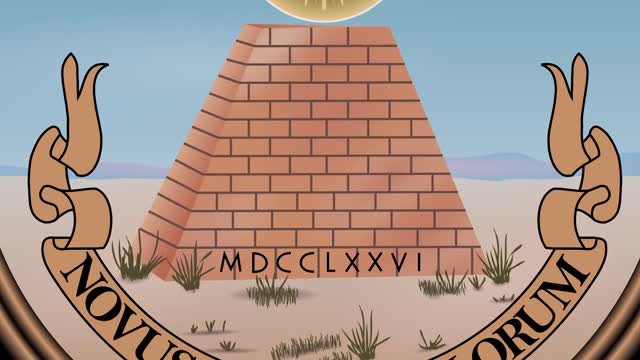
A Very Short History of Cannabis
An Accurate History of Cannabis from the Earliest Times to the Present Day. Both Medicinal Marijuana and Recreational Cannabis were once widely used and legal. In the past 100 years, they became mainly illegal. This will probably turn out to be a temporary phenomenon as legalization increasingly is the norm. Enjoy this cannabis documentary.
SCRIPT: 2017 combined worldwide sales of cannabis products, legal and illegal, were over $200 billion a year, but where did it all begin? It goes back to neolithic Japan, about 10000 BC. Someone used it to start a fire, then realized it smelled kind of cool and it chilled everyone out. For Japan, it was spiritual. In China, it was useful, medicine, rope, soup, clothes from hemp, and weapons. And bowstrings were more powerful, perhaps it was the first time cannabis killed anyone. 2727 BC, Emperor Shen Nong father of Chinese medicine wrote the first fan letter to cannabis. He called it Ma. He died experimenting on himself. A thousand years later, Indians called it bhang, they smoked it. Egyptians drank it in tea. Inhaling was the preferred means of consumption worldwide. In 480BC, Herodotus saw the Scythian tribe said to be the most uncouth and savage in the Middle East inhaling the vapors of hemp, both as a ritual and for their own pleasurable recreation.
The first smoking pipes in Ethiopia around 1320 contained traces of cannabis. From 1545 the Spanish put the Ma into Manana and started growing huge tracts in Chile. It traveled north to Richmond, Virginia growing on the shores of the Potomac, spreading to what is now Washington DC. In 1619, the law was every plantation in Virginia had to grow cannabis, known as Indian hemp, mainly for rope but they smoked it as well. Pipe for peace, perceptions of cannabis began to change. It was becoming a threat to the power elite and Wash DC was the place America began to outlaw the drug, making it a prescription-only medicine in 1906. By the 1920s laws were tightening, thanks to lobbying by the beer industry and Harry J Anslinger first head of the US Bureau of Narcotics. They called him Harry party pooper.
In slave labor colonies like India, Brazil, and Singapore, cannabis was labeled the shirker's drug. Cocaine was promoted as the workers' drug increasing stamina and concentration by as much as cannabis reduced it. A Government-funded movie, Reefer Madness showed how a single puff of weed drives men and women to wild psychosis. Cannabis regulation tightened and tightened. It was finally banned in 1937 in case it turned the nation's youth into communists. Narcotics Bureau boss Harry Anslinger shore boosted the profits of the brewers and the paper barons. By the 1950s cannabis was heavily associated with jazz musicians. Then white people started visiting jazz clubs and the genie was out of the bottle. Perhaps that was the moment cannabis became a drug for rebels. It spread through the middle classes via the beatnik culture. World governments reacted in 1961 with a treaty to ban production and supply except for medicinal and research purposes.
Conscripts returning from the Vietnam war, shell-shocked young men retreated to the hillsides of Northern California where they could smoke pot in peace and also grow it in peace, some of them went psychotic. Whether a result of the war or the cannabis is hard to prove. In 1971, Richard Nixon combined the two when he coined the war on drugs. It was a great excuse to tool up for a global war against the generation of super-rich dealers who are still with us. While the US was destroying cannabis crops, a new era was dawning. In 1976 the Dutch government de-criminalized, which was great for dealers. Cannabis was legal to possess, but it illegal to sell. Perfect.
In 2001 Portugal adopted the Dutch policy. The same year, Canada became the first country to legalize medical marijuana. A dozen US states followed including California and by 2015 Wash DC made it legal to use but not to sell. That was good news for the guys with Uzis. By 2020 medical marijuana sales are forecast to be $17 billion a year in the USA alone and the illegal sales at about 40 billion since legal by then, which is also possible. 2015 Uruguay became the first country to legalize recreational marijuana. June 2018 cannabis-infused beverages are overtaking wine sales in Oregon. Americans rejoiced when the FDA approved Epidiolex for treating epilepsy. In the UK sufferers begged for the same cannabinoids. October 2018 Canada legalized recreational use joining nine US states and Washington DC.
Looks like prohibition will turn out to be a temporary phenomenon. Researchers say there are many more medical benefits to uncover. It will be a trillion-dollar industry once it's legal everywhere to inhale the vapors. ***<>***
Notice
Age-restricted video (based on Community Guidelines)
-
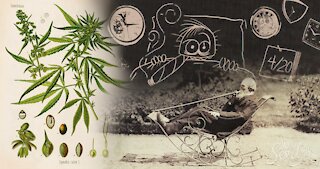 5:02
5:02
Kush World
4 years ago $0.01 earnedCannabis History explained in 5 Minutes | Short History of Cannabis
89 -
 1:31
1:31
DeathsStalkerRVT
4 years agoA Short History of the Motorcycle by Richard Hammond
170 -
 8:30
8:30
All about architecture relatead
4 years ago $0.01 earnedWalking 1881 Heritage with short history
260 -
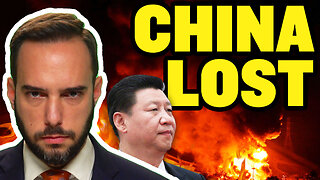 6:41
6:41
China Uncensored
2 hours agoIran Is a DISASTER for China
5.57K5 -
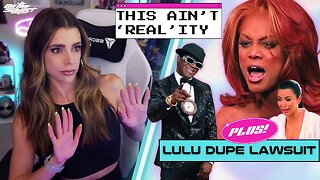 LIVE
LIVE
megimu32
59 minutes agoOTS: LuluLawsuits & Reality TV Chaos - Costco, Comebacks & The Reality Boom
95 watching -
 7:29:24
7:29:24
Dr Disrespect
9 hours ago🔴LIVE - DR DISRESPECT - IMPOSSIBLE WARZONE CHALLENGES
202K8 -
 11:20
11:20
Tundra Tactical
1 hour agoWhat Your EDC Says About YOU!!!
3.33K1 -
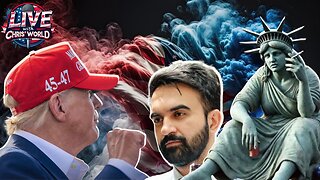 1:30:30
1:30:30
LIVE WITH CHRIS'WORLD
6 hours agoLIVE WITH CHRIS’WORLD - Democrats Elect Communism | One Big Beautiful RACE to the Finish Line
4.26K2 -
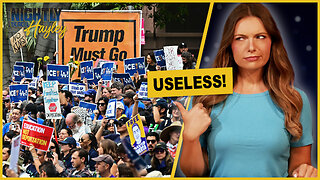 1:13:11
1:13:11
BonginoReport
4 hours agoProtestors Desperately Need a Reality Check - Nightly Scroll w/ Hayley Caronia (Ep.80) - 06/30/2025
167K60 -
 1:03:24
1:03:24
Donald Trump Jr.
5 hours agoCanada Folds, Stocks Surge, and America is Winning. Interview with Daniel Turner | Triggered Ep254
54.5K43